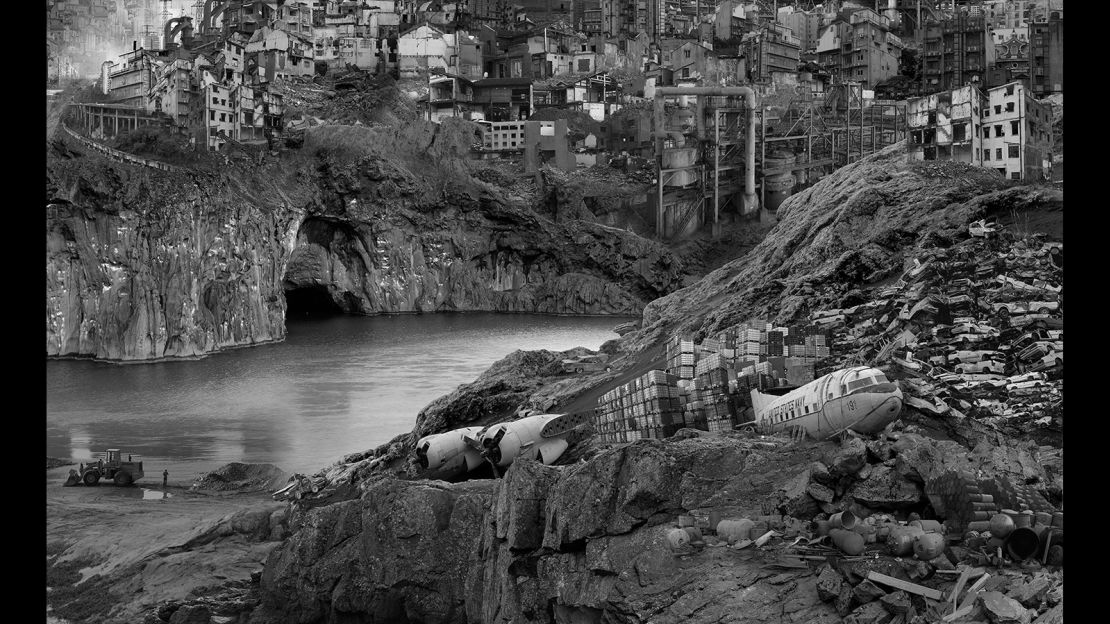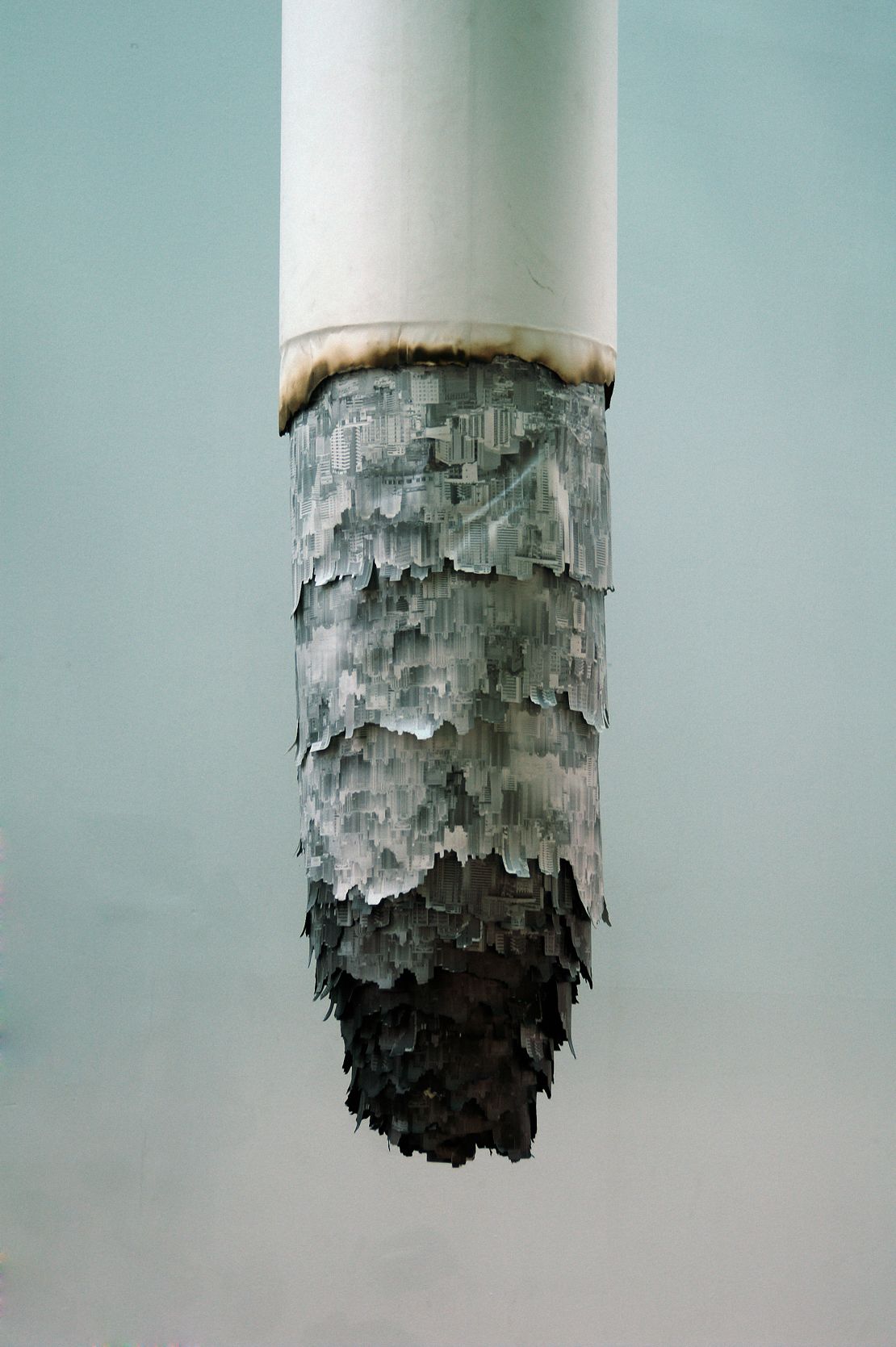Story highlights
Artist Yang Yongliang layers countless digital photographs to create new landscapes
Yang's art is a response to witnessing the country's rapid urbanization
Yang's newest project will involve virtual reality
Yang Yongliang’s dreamy works have the familiarity of traditional Chinese paintings, but on closer inspection, his take on the country’s rapid urbanization is soon revealed, in what he describes as ‘digital landscapes.’
Armed with an extensive database of city photos he’s taken himself, the Shanghai-based artist layers these images and creates new worlds. With the exception of some pencil sketches, the process is completely digital and relies on Photoshop and After Effects. His four by eight-meter work, “From the New World” took him six months to complete.

Yang says his work is not meant to represent a single city or country, but rather the overall state of our world. He has continued to expand his storytelling by turning to video and film. Below, Yang discusses his newest project, a turn at virtual reality, as well as themes explored in his work.
CNN: You grew up in a suburb outside of Shanghai in the 1980s and then went to college in the city just as it was on the verge of a huge urban transformation. How did witnessing this firsthand affect you and your art?

Yang Yongliang: It all happened so fast. 10 years ago, when I look at Pudong from the Bund, there was only one high building, the Pearl Tower. Nowadays that view has completely changed and is more competitive than the buildings in Hong Kong.
It was not only in central Shanghai, it was also in my hometown Jiading District (northwestern part of the city) where old bridges and towers were being demolished and replaced by just modern city buildings. The growth of the city and fast speed of the growth have a strong impact on my work.
My work is trying to express witnessing the growth of a city and how tradition is getting replaced by modern architecture and industrialized city lives.
With the exception of a few of your earlier works, there’s a noticeable lack of color. Is that a conscious decision to stay in line with this traditional painting style?
Yes, because most of Chinese landscapes are seen as monochrome. I believe it has to do with the philosophy behind traditional paintings. I think Song and Yuan Dynasty master painters chose to use monochrome because they believe that the world can be described in two colors.
This is like the relationship between yin and yang where two colors can describe the whole world. On one hand, I’d like to continue the tradition; on the other hand, personally, I like the modern architecture better in black and white. It seems more surreal.
You’ve also branched out into videos, installations and film. How have these mediums enhanced or challenged your ability to be a storyteller?
Filmmaking is more direct because it involves narration while digital landscapes have the story hidden, so the audience has to imagine themselves among the landscape. After developing digital landscape for over a decade, I’m open to new experiments.

Among all kinds of mediums, filmmaking interests me the most. It requires teamwork, and collaboration among many other artists, in cinematography, sound design, editing and etc. It is definitely new for me, but it is what keeps me excited. It’s only when someone expands his range that he’ll be able to create more innovative, more enlightened work.
Your newest project is venturing into the world of virtual reality. How can we expect from this experience?
The project is entitled Eternal Landscape, a collaborative try-out with Monochrome from Paris. it presents Chinese landscape in an immersive environment. Different from all of my previous works, buildings will not be seen in it; this piece would be a pure natural landscape.
As we know, Chinese landscape paintings mean to create impressionist, and surreal landscapes in one’s mind rather than naturalistic re-creation; the scenes depicted are often no where to be found in reality. It’d be fascinating if we can create Chinese landscape in a 3D immersive platform, so we’d be able to walk in the environment for the first time.

This is not only a personal adventure, it’d also be a breakthrough in the history of Chinese paintings. With VR on one hand, and filmmaking on the other, I’m getting myself ready for new possibilities in immersive cinema.
Contemporary art is closely associated with freedom of speech. How do you reconcile that with being in a country that has reputation for censorship?
My art is about pretty general questions about globalization and urbanization instead of any specific events or social issues. I believe politics and social events are temporary, they change greatly through the passing of time.
I believe great art is something that can speak to generations and different cultural background, people who grow-up in different places. I am more willing to find a connection between people and try to express the untold concerns we have as global citizens.


















